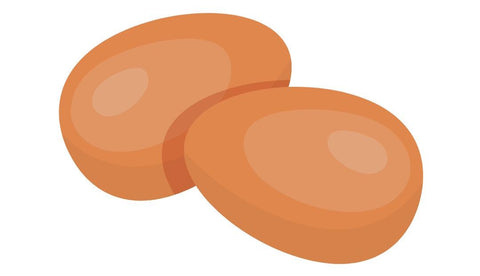Vitamin D: The “sunshine” vitamin
Vitamin D the sunshine vitamin
With most of us having spent a significant amount of our time in doors recently, and consequently being sheltered from sunlight, there has understandably been an increase in the risk of developing vitamin D deficiency among the general population. In this blog, we will explore the role of Vitamin D and why it is so important for good health.
What is vitamin D?

You may have heard vitamin D being referred to as “the sunshine vitamin”. This name comes from the fact that vitamin D, or to use its full name, Cholecalciferol, can naturally be produced in our skin when exposed to sunlight. However, in the UK during autumn and winter we do not get sufficient Vitamin D from sunlight. It is difficult to get enough vitamin D from food, therefore it is recommended that people take a daily 10 microgram Vitamin D supplement during these months.
Why is Vitamin D important?
Vitamin D's role in the body is to aid in the maintenance of our bone health via promoting calcium and phosphate absorption. These minerals help to keep our bones dense and strong in what is known as bone mineral density. Maintaining your bone mineral density is key in reducing your risk of osteoporosis where overtime, bone mineral density is lost, therefore increasing the risk of fractures
from falls later in life. Vitamin D may also play an important role in the health of our heart health, immune system, mood and cognitive function.
Who is at risk of Vitamin D deficiency?
This risk of deficiency is thought to be as much as 4 to 6 times greater in those of South Asian, African and Afro Caribbean descent due to darker skin pigmentation blocking the production of vitamin D from direct sunlight. Certain groups in the population are at a higher risk of vitamin D deficiency:
- Obesity (BMI>30kg/m2)
- Those who are not outdoors often, e.g., those in care homes or institutions, elderly
- Those with restrictive diets
- Those taking certain medications, e.g., epilepsy
- Medical conditions that result in malabsorption, e.g., coeliac and crohn’s disease
Food sources of Vitamin D
Although most of the vitamin D we get is from the sunshine, it can also be found in a small number of foods such as:
- Oily fish such as salmon, herring, sardine, and mackerel

- Egg yolk

- Red meat

- Liver
- Fortified foods such as breakfast cereals

It has been challenging during lockdown and for those shielding to meet their recommended intake of vitamin D, increasing the risk of vitamin D deficiency. Taking a daily vitamin D supplement and choosing food sources high in Vitamin D can help prevent deficiency and support our health and wellbeing as lockdown continues.

